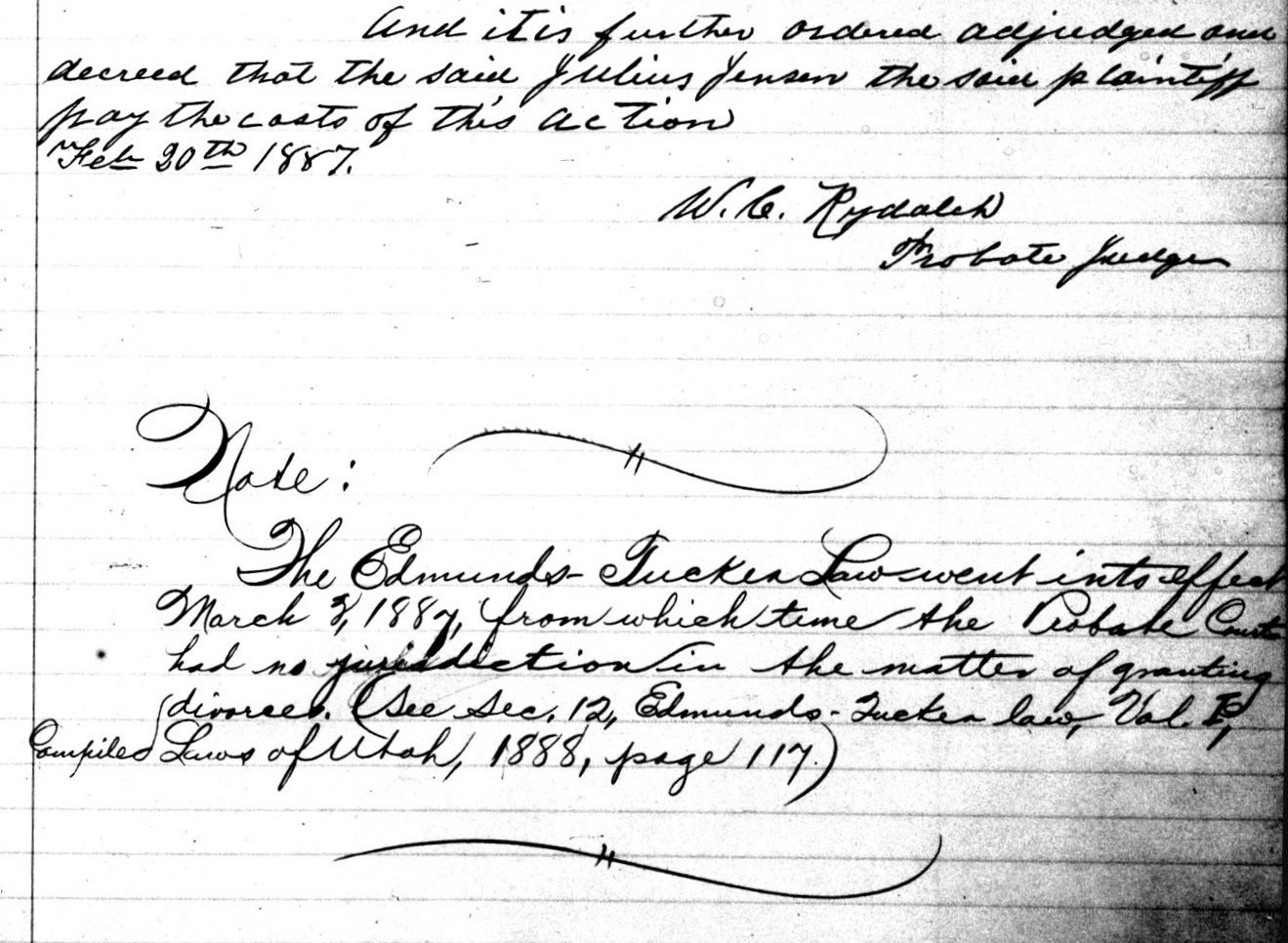
Remembering the Edmunds-Tucker Act
It was in March that the landmark anti-polygamy Edmunds-Tucker Act took effect 132 years ago in 1887. A note in the divorce record for the Tooele County Probate Court highlights the far-reaching extent of the legislation.
After the final divorce record from February 1887, the court clerk made a simple note explaining the abrupt end to the record. He noted “the Edmunds-Tucker Act went into effect March 3, 1887, from which time the Probate Courts had no jurisdiction in the matter of granting divorces.”
The Edmunds-Tucker Act is known for its provisions disincorporating the Church of Jesus Christ of Latter-day Saints; confiscating Church property; compelling plural wives to testify against their husbands; requiring voters, jurors, and public officials to take an anti-polygamy oath; and depriving Utah women of the right to vote that they had held since 1870. Lesser known are the provisions regarding Utah’s court system. The county probate courts, originally set up to deal exclusively with probate matters, were under local control. Over time, the territorial legislature increased their jurisdiction to include civil and criminal matters as well. For the Mormons, these courts became a counter-balance to the federally-controlled district courts. As part of the effort to curtail LDS Church influence in the territory, the Edmunds-Tucker Act restricted the jurisdiction of the probate courts to their original mandate. The Edmunds-Tucker Act brought extreme pressure on the LDS Church, eventually leading to the officially ending polygamy in the Church and paving the way for Utah to finally achieve statehood in 1896.
Recent Posts
Authors
Categories
- Certification/
- Digital Archives/
- Electronic Records/
- FAQ/
- Finding Aids/
- General Retention Schedules/
- GRAMA/
- GRAMA FAQs/
- Guidelines/
- History/
- Legislative Updates/
- News and Events/
- Open Government/
- Records Access/
- Records Management/
- Records Officer Hub/
- Records Officer Spotlights/
- Research/
- Research Guides/
- RIM FAQs/
- Roles and Responsibilities/
- State Records Committee/
- Training/
- Uncategorized/
- Utah State Historical Records Advisory Board/




